Let’s start with the perspective that there are hundreds of elected officials in Illinois and even more in the federal government who do the work, put in long hours and do so honorably, never, ever coming near crossing a line or having a whiff of an ethical question raised about their behavior.
That fact often is noted by state legislative leaders whenever calls come for beefing up efforts to curtail corruption. It’s true: Most do the job and do it well and for the right reasons.
Yet it also remains true that we continue to see questionable if not illegal behavior by many elected officials at every level of government.
For some reason, even some politicians who are newer to the role or who run on platforms of embracing ethics and changing corrupt business as usual take office, get caught up in the trappings, embrace the sense of entitlement and start crossing the line.
The latest examples of ethical lapses? The very people who are supposed to set the platinum standard for the rest of us: U.S. Supreme Court justices. ProPublica has reported on luxury flights, vacations and other goodies never disclosed for more than two decades by Justice Clarence Thomas. A similar luxury trip was accepted and not disclosed by Justice Samuel Alito. The pricey gifts were given by people who have had business before the court.
In Illinois, we’ve just seen the convictions of Michael McClain, a crony of former House Speaker Michael Madigan; former ComEd CEO Anne Pramaggiore, and former ComEd lobbyists John Hooker and Jay Doherty. Madigan’s chief of staff, Tim Mapes, is scheduled to face trial next month on corruption charges; Madigan is slated to follow next year.
In Cook County, a judge recently removed the need for an outside monitor for Cook County Clerk Karen Yarbrough’s office, despite the fact that in the past year, the court-appointed monitor over her office said she “repeatedly and materially violated its hiring policies.” Yarbrough has been accused of hiring her friends, relatives and political allies of Madigan for years.
In Chicago, Inspector General Deborah Witzburg found probable cause, and the city’s ethics board members agreed, that a council member, identified in news reports as James Gardiner, wrongly punished a critic constituent by seeing to it that hundreds of dollars in bogus fines were levied against him for weeds and rodents in his yard. And former Mayor Lori Lightfoot was soliciting campaign contributions and help from Chicago Public Schools and City Colleges employees. A Lightfoot spokesperson said the finding is “demonstrably false,” but reports indicate that her campaign sent thousands of emails over several weeks, and Witzburg is not backing down.
She told the Chicago Sun-Times the increased focus on enforcing ethics rules and laws is an intentional effort to “pay down Chicago’s deficit of legitimacy.” Witzburg added, “We’re gonna hold people accountable when they break the rules, regardless of the positions they sit in.”
Clearly, at all levels of government, there still is a need for strict, clear ethics rules and laws and a need for stiff, meaningful punishment when there are violations.
Chicago has had a strong inspector general and independent ethics board for years, including prior to Witzburg’s appointment.
There remains a need to boost the power and independence of the IG who oversees the state’s legislative branch and its conflicted ethics board comprised of current and former lawmakers.
More changes can and should be enacted to make clear what is acceptable behavior and to firmly punish those who act corruptly.
Hiring decisions should be based on what you know, not who you know. Campaign solicitations should be sent only to people who do not work for you. You should not pay off an official to get a desired policy or law changed. Don’t accept expensive, outlandish gifts or perks if you are serving the public. Treat everyone with dignity and respect. These are not tough concepts, but we continue to see them dishonored.
Let’s give the last word here to “ComEd Four” juror Amanda Schnitker Sayers, who offered a clarion call after she and her colleagues rendered their May verdict:
“This should be a landmark where we start to do better for ourselves, for our children, and have pride in our city and our state and not make any shady dealings to get stuff done. Because we don’t need to,” she told reporters. “We’re amazing people. We can all do amazing things.”
This article was originally published on July 24, 2023, in Crain’s Chicago Business .
